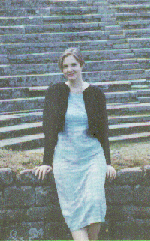 EDITORIAL
EDITORIAL
A FACELIFT FOR DIDASKALIA
 Back in May, when this issue was supposed to appear, I had just begun redesigning Didaskalia's website so that the form would match the content in quality. By now most readers have already seen the new buttons and backgrounds and the expanded profiles of the members of the Editorial Board, but if you have not, take time to look around. Your comments will be appreciated. I personally like to think that the improved appearance of the journal was a factor in its nomination for a UCISA award. (Results of the competition are not yet available.)
Back in May, when this issue was supposed to appear, I had just begun redesigning Didaskalia's website so that the form would match the content in quality. By now most readers have already seen the new buttons and backgrounds and the expanded profiles of the members of the Editorial Board, but if you have not, take time to look around. Your comments will be appreciated. I personally like to think that the improved appearance of the journal was a factor in its nomination for a UCISA award. (Results of the competition are not yet available.)
To make up for the excessively late delivery of this issue, the autumn issue should appear within 2 weeks of the time you read this editorial. (If, of course, you bother to read the editorials, which you may not unless you want to know whether I have yet run out of excuses and apologies.) But don't take my word for it.
This issue presents four perspectives on adaptations of Greek theater and adaptations of Homer into theater. The next issue will provide a selection of performance reports. Following the autumn issue, however, we will be discontinuing the thematic format and will welcome features on any relevant subject for any issue.
Didaskalia is now collaborating with two fairly substantial projects. The first is a survey of performances, later to be turned into a WWW database, by the American Philological Association's Committee for the Performance of Classical Texts. This database will be supplemented with information collected by Oxford University's Archive of Performances of Greek and Roman Drama. The CPCT archive focuses primarily on university productions and the use of performance in the classroom, while the Oxford archive is dedicated to major professional productions from the Renaissance onwards. Please take the time to fill out a survey if you have not done so already. (The ASCII version is available by ftp with this issue of Didaskalia.)
Sallie Goetsch
University of Warwick
E-mail: tssac@csv.warwick.ac.uk
